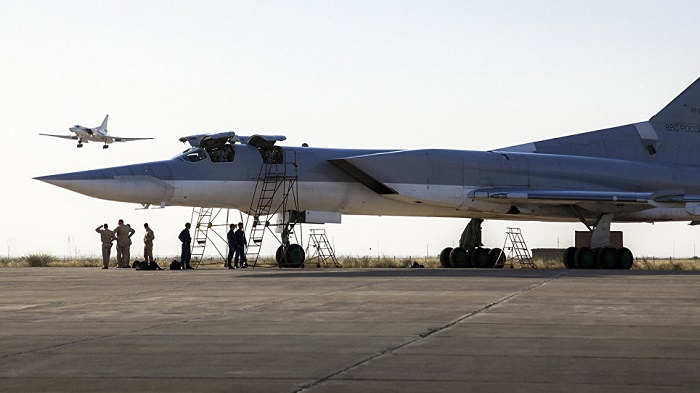The Evolution of Strategic Cooperation Between Russia and Iran

By: Kaveh L. Afrasiabi
By all indications, Russia's access to Iran's military base in Hamadan for airstrikes against terrorists in Syria is the clearest indication yet of the evolution of strategic cooperation between Moscow and Tehran. This is due to both short and long-term strategic considerations that outweigh any political and or legal concerns, particularly on the part of Iran, which has authorized Russia's access to Iran's base following deliberations by the Supreme National Security Council.
Although the content of those deliberations remains confidential, we can safely assume that pragmatic national security calculus operated to overcome certain constitutional reservations regarding this matter. The unprecedented move by Iran fits the country's national security interests, in light of the present and clear danger of foreign-backed terrorism wreaking havoc in Iraq and Syria, and has transpired within the contexts of both bilateral (Russia-Iran) and multilateral (Russia, Iran, Iraq, and Syria) contexts warranting the re-fueling of Russian bombers in Western Iran and their flight over the Iraqi sky. A new depth in military cooperation between Iran and Russia has thus been achieved that coincides with an overt re-thinking of Turkish foreign policy in the aftermath of the failed coup, thus giving Washington and its allies in the region a double jolt.
As expected, Washington has reacted negatively to the news of Russia-Iran cooperation, which according to wire reports "sends a signal" to Washington regarding Russia's ability to work with US's opponents in the region, although it is more fitting to analyze this matter from the prism of (neo) realism in international relations, that provides a theoretical framework for deciphering the multiple implications and significance of this new development. A definite re-alignment of forces to the detriment of US's interests is presently taking shape, partly as a result of the failed US policies that reek of incoherence.
Although some western commentators have opted to view the Iran-Russia cooperation as a zero-sum game that is fundamentally detrimental to US's interests, it is far from clear that this is necessarily a "complicating factor" in US-Russia relations that will set back the clock on their cooperation on Syria. As Iran's leaders have repeatedly stated, there is no "military solution" in Syria and the resolution of the Syrian crisis requires a political initiative, like the kind pursued by UN's envoy on Syria, Stefan De Mistura, who is seeking a new round of Geneva peace talks on Syria. But, the events on the ground, such as the battle over Aleppo, can generate their own momentum, outpacing the diplomatic front.
From Iran's vantage point, which seeks to bring Turkey within the context of regional cooperation on Syria, the stage is set for a major push to defeat the terrorists in Syria and Iraq, assuming that the existing political differences, such as with respect to a future elections in Syria, can be successfully tackled. Iran must show sensitivity to Ankara's national security concerns, e.g., with respect to the Kurdish issue, which can be mediated through prudent diplomacy, whereby Turkey's hesitations would melt by the new realization that it can harvest a great deal in regional affairs by treating Iran and Russia as friends rather than competitors. Ankara has now verbally committed itself to a vigorous campaign against the ISIS strongholds in Syria, which is music to the ears in Moscow and Tehran, both seeking to de-conflict Syria and restore its territorial sovereignty and integrity.
Needless to say, the west's perception of a zero-sum game in Syria is potentially dangerous and can lead to Washington's attempt to lengthen the Syrian quagmire both directly and indirectly. In other words, US's spoiler role should not be underestimated. At a time when US is devoting considerable attention to its Pacific strategy and its China containment policy, the evolution of Russia-Iran cooperation highlights the need for Washington to stop its current demonization of Iran, which has so far led to the application of coercive diplomacy toward Iran. This is clearly a counterproductive and even dysfunctional policy that overlooks the shared US-Iran interests and the necessity of Washington-Iran cooperation on regional crises. The fact of the matter is that we are dealing with non-zero sum situations in Iraq, Syria, Afghanistan, and elsewhere in the region, dictating the necessity of "mixed motives' games of simultaneous cooperation and conflict.

